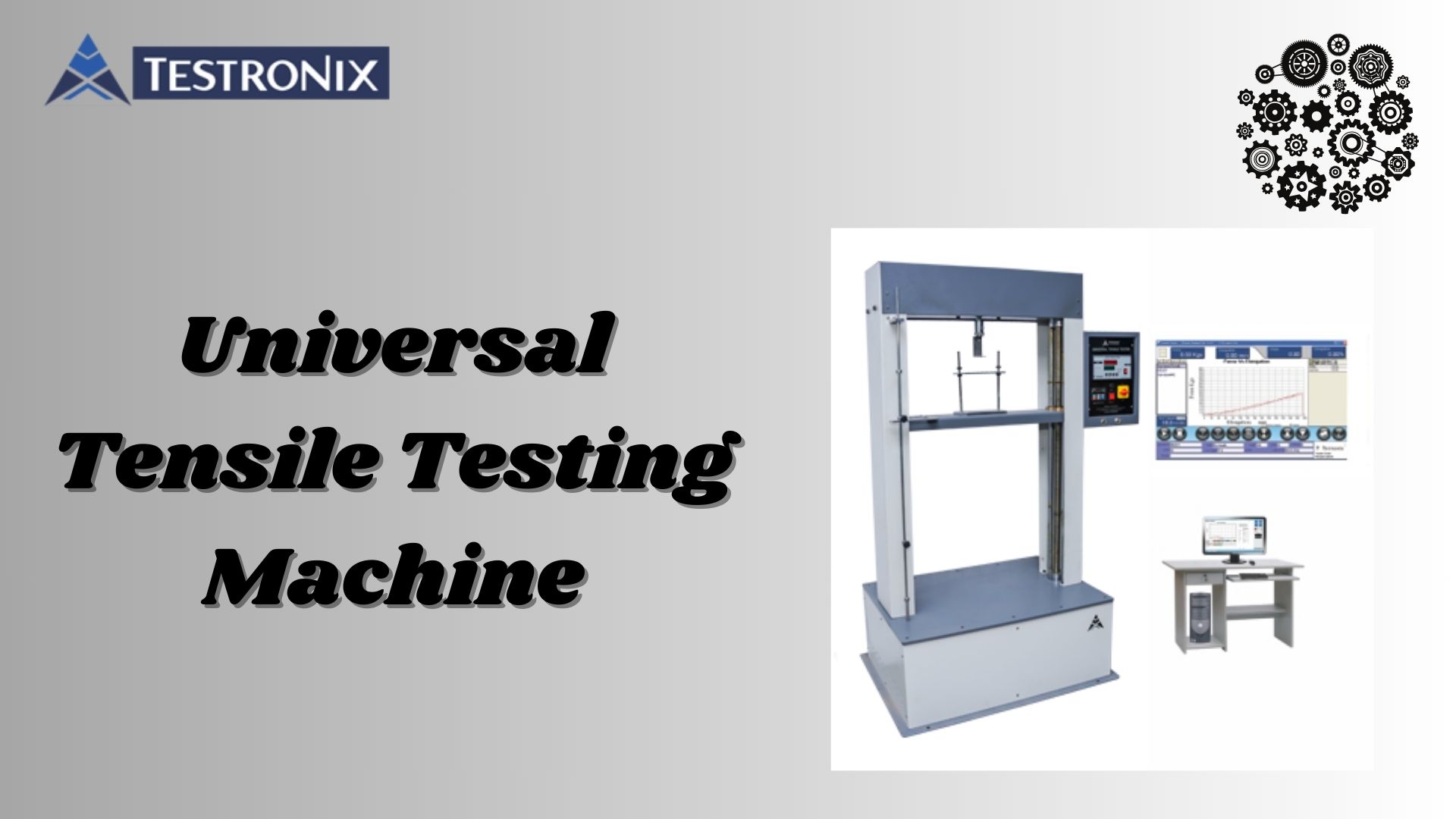Enhancing Product Durability with a Universal Tensile Testing Machine

A universal tensile testing machine is an indispensable tool for testing the mechanical properties of materials to check their conformance with practical standards for usage. Through controlled stress and strain, it measures accurately the strength, flexibility, and durability of the materials, enabling manufacturers to make informed decisions about material choice, so that only the best available materials are used in the production process.
In addition to material selection, a universal tensile tester also serves another significant role in analyzing product designs. Manufacturers can identify weaknesses early, enabling them to make relevant adjustments that improve reliability and quality. This enhances the durability, safety, and quality of products, leading to brand reputation and market competitiveness.
Definition and Purpose
The Universal tensile tester is highly versatile and fundamental equipment that can be used to measure the mechanical properties of materials under various forces. They apply controlled stress and strain on materials in such a way that manufacturers can know the strength, flexibility, and durability of the material. It mainly aims at ensuring that the materials used meet the set standards for real applications; thus, the machine will be useful in product development and quality control.
Key Features and Capabilities
The universal tensile testing machine has advanced features, which include accurate load cells, extensometers, and high performance software for collecting and analyzing data. It is able to perform various tests: tensile (stretching), compression, and bending. With the ability to set grips and fixtures, the machine can handle materials of almost any shape and size. Its precise measurement capabilities ensure that manufacturers can obtain accurate, reliable data on material behavior, which is necessary for optimizing product designs and ensuring performance under stress.
Types of Materials Tested
A universal tensile tester tests various types of materials, including metals, plastics, composites, textiles, and rubber. It finds extensive use in the automobile, aerospace, construction, and manufacturing industries. Raw materials, components, or even finished products can be tested on the universal tensile testing machine to ensure the material complies with required strength and durability standards, and this, in turn, will result in highquality and reliable products.
How a Universal Tensile Tester Works
The Testing Process Explained
The universal tensile tester applies controlled forces to test the mechanical properties of the sample material. It uses two grips, between which the material is placed; then a force is progressively applied in a certain direction. The force is progressive, and the material that undergoes deformation with each increase in force is evaluated. The machine records the amount of stress (force per unit area) and strain (deformation) that the material undergoes during this process. The data collected helps determine critical properties such as tensile strength, elongation, and modulus of elasticity. This process ensures accurate, repeatable results for assessing material behavior under different conditions.
Importance of Controlled Stress and Strain
The precise control of stress and strain is crucial in obtaining reliable data. The universal tensile tester applies a gradual, controlled load to materials to allow for a complete understanding of how materials behave under stress. This controlled environment prevents sample failure due to sudden forces, allowing manufacturers to identify the material's breaking point, elasticity, and overall performance. If this level of control is not applied, the test could yield inaccurate or inconsistent results, leading to poor material selection and potential product failure.
Types of Mechanical Tests Performed
A universal tensile testing machine can perform a range of mechanical tests depending on the material under test. These include:
• Tensile Test: Measures the ability of a material to resist tension or stretching.
• Compression Test: Assesses how materials resist compressive forces, thereby identifying their behavior under squeezing conditions.
• Flexural Test: Tests the bending strength of materials, commonly used for composites or materials subjected to bending stresses.
• Shear Test: Measures a material's ability to resist forces causing one layer to slide on top of another.
Providing such diverse testing capabilities, the universal tensile tester offers an all-inclusive view of how materials will perform under real-world applications.
Conclusion
A universal tensile testing machine is essential for evaluating material strength, flexibility, and durability through controlled stress and strain. It ensures materials meet practical standards, aiding manufacturers in making informed material choices. Additionally, the universal tensile tester helps improve product designs by identifying weaknesses early, enhancing durability, safety, and overall product quality, which boosts brand reputation and com
Note: IndiBlogHub features both user-submitted and editorial content. We do not verify third-party contributions. Read our Disclaimer and Privacy Policyfor details.







